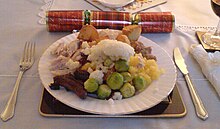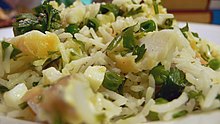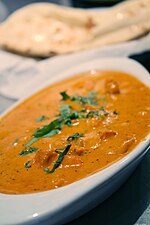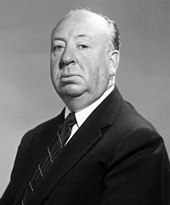Media
The BBC, founded in 1922, is the UK's publicly funded radio, television and Internet broadcasting corporation, and is the oldest and largest broadcaster in the world.[543][544][545] It operates numerous television and radio stations in the UK and abroad and its domestic services are funded by the television licence.[546][547] Other major players in the UK media include ITV plc, which operates 11 of the 15 regional television broadcasters that make up the ITV Network,[548] and News Corporation, which owns a number of national newspapers through News International such as the most popular tabloid The Sun and the longest-established daily "broadsheet" The Times,[549] as well as holding a large stake in satellite broadcaster British Sky Broadcasting.[550] London dominates the media sector in the UK: national newspapers and television and radio are largely based there, although Manchester is also a significant national media centre. Edinburgh and Glasgow, and Cardiff, are important centres of newspaper and broadcasting production in Scotland and Wales respectively.[551] The UK publishing sector, including books, directories and databases, journals, magazines and business media, newspapers and news agencies, has a combined turnover of around £20 billion and employs around 167,000 people.[552]
In 2009, it was estimated that individuals viewed a mean of 3.75 hours of television per day and 2.81 hours of radio. In that year the main BBC public service broadcasting channels accounted for an estimated 28.4 per cent of all television viewing; the three main independent channels accounted for 29.5 per cent and the increasingly important other satellite and digital channels for the remaining 42.1 per cent.[553] Sales of newspapers have fallen since the 1970s and in 2010 41 per cent of people reported reading a daily national newspaper.[554] In 2010, 82.5 per cent of the UK population were Internet users, the highest proportion amongst the 20 countries with the largest total number of users in that year.[555]










